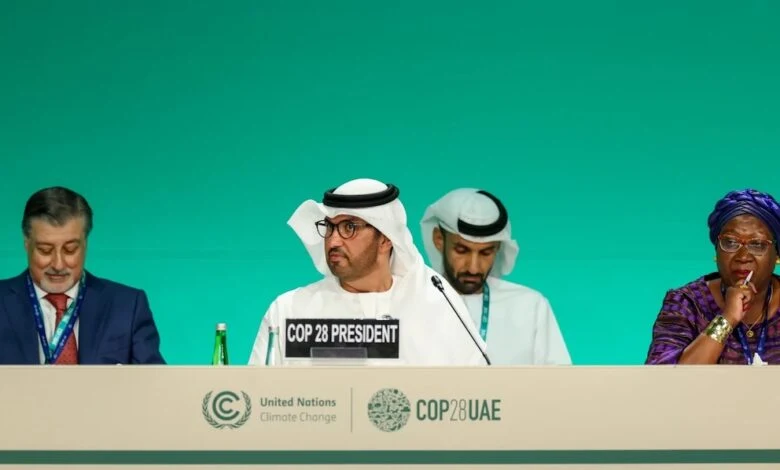After days of intense negotiations, a historic agreement has been reached at the United Nations climate summit in Dubai – COP28. For the first time, all countries have been called upon to transition away from the use of fossil fuels. While the agreement falls short of demanding an immediate phase-out of fossil fuels, it sets the world in the right direction towards a sustainable future.
Sultan Ahmed Al-Jaber, the president of COP28, hailed the agreement as a paradigm shift that has the potential to redefine our economies. In his statement, he emphasized the importance of sending clear signals on multiple fronts. This agreement marks a significant milestone in the global effort to combat climate change.
COP28 Outcomes
One of the notable outcomes of COP28 was the commitment made by 60 maritime organizations and government partners to achieve the International Maritime Organization's net zero targets by or around 2050. This commitment was made at the "Shaping the Future of Shipping" event, hosted by the International Chamber of Shipping and the government of the UAE. With over 300 leaders from across the world's energy-maritime value chain coming together, there is hope for a robust regulatory outcome at the IMO negotiations in March 2024.
During COP28, the CEOs of leading global shipping lines, including MSC, Maersk, CMA CGM, Hapag-Lloyd, and Wallenius Wilhelmsen, made headlines by issuing a joint declaration calling for an end date for fossil-only powered newbuilds. This united front showcases the industry's commitment to transitioning towards cleaner and more sustainable shipping practices.
In addition, APM Terminals and DP World announced the creation of the Zero Emission Port Alliance (ZEPA) during COP28. ZEPA aims to make battery-electric container handling equipment affordable, accessible, and attractive in the coming decade through collective action. This initiative demonstrates the industry's determination to embrace innovative solutions and contribute to decarbonization efforts.
Significance of COP28 Outcomes
Furthermore, a significant step towards decarbonizing shipping was witnessed with the arrival of the world's first ammonia-capable vessel in Dubai. Although it currently operates on diesel fuel, this vessel symbolizes the progress being made towards adopting cleaner energy sources within the shipping sector.
At COP28, Australian miner Fortescue showcased its retrofit project in the waters of Dubai Harbour Marina. This demonstration highlighted both the creative approaches and regulatory changes necessary to achieve decarbonization in shipping. It serves as a reminder that collaboration between industry players and policymakers is crucial for driving meaningful change.
Summary
The agreement reached at COP28 marks a turning point in global efforts to combat climate change. While it falls short of demanding an immediate phase-out of fossil fuels, it sets a clear direction towards a future powered by sustainable energy sources. The commitments made by maritime organizations and shipping industry leaders demonstrate a collective determination to embrace cleaner practices. The creation of initiatives like ZEPA and the arrival of ammonia-capable vessels further highlight the progress being made towards decarbonizing shipping. As we move forward, it is crucial for all stakeholders to continue working together to accelerate the transition towards a fossil-free future.
(This article is sourced from Splash247.com and curated by Thetransporteronline24)



